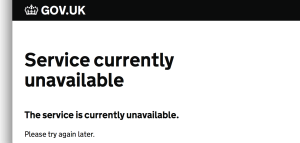In September, the Solicitors Regulation Authority (SRA) issued a warning notice on tax avoidance directed law firms advising clients directly about tax or handling client matters that involve them in the design, implementation, organisation or management of tax avoidance schemes. Here Andy White, Senior Partner at CBW, one of the top 50 firm of accountants, tax and business advisers based in the City of London, examines the controversial contents of the notice in light of the government's views on tax avoidance.
There was a time, when summers were long and hot, and petty juvenile crime was dealt with by a clip round the ear from the local bobby [police], when everyone understood the authorities’ attitude to tax and more particularly to tax mitigation… (Incidentally, at that time it was far easier to understand tax itself, but that’s another story).
In those far off days, mitigation fell broadly into three categories: tax planning (perfectly legal and morally upright, according to the oft-quoted Lord Clyde), remains to this day an acceptable pursuit in the eyes of many; at the other end of the spectrum, tax evasion was, and remains, I am pleased to say, unlawful and is rightly punishable by heavy financial penalties and in rarer cases loss of liberty.
The problem lies in the middle with what is known as tax avoidance. In this area, there is no question of the taxpayer concealing facts from or lying to HMRC, but the planning involved is often contrived and artificial.
In those aforementioned times, tax avoidance was regarded as smart or shrewd. Few people knew how it worked, but there was respect, even admiration, for those operators who managed to out-smart the government.
Today, of course, the landscape is unrecognisable.
Blurred lines
The Government has mounted a sustained attack against what it calls “abuse”. It has deliberately blurred the edges between planning, avoidance and evasion such that I have heard one member of HMRC’s anti-avoidance unit proclaim that investing in an ISA is at the less egregious end of the avoidance scale; as if it can in any way be described as avoidance.
Simultaneously, a campaign has been waged to characterise avoidance as the work of the devil, in an attempt to ostracise those who engage in it. This blurring of the edges has been supported by constant demands that everyone should pay the “right amount of tax”.
This, frankly, is a ridiculous concept. “Right” by whose standards? Any law that depends for its operation on the view of the sole occupant of the omnibus on its way to Clapham cannot command the respect of the citizens who need to obey it and can only lead to judgments which are, at best, capricious.
Moreover, the definition of tax avoidance seems now to centre on whether or not the planning involved seeks to defeat the intention of Parliament. So, it now matters less what the law says, rather what Parliament meant it to say. This is a very dangerous game indeed.
Adapting to the new landscape
If one believes what is appearing daily in the more lurid press reports, there is currently only one thing on the mind of Members of Parliament, but can it be right that the law should depend for its operation on the judiciary having to second-guess the intentions of the lawmakers?
Nevertheless, this is where we are, and it is incumbent upon professional advisers to adapt to the new environment, particularly, but not exclusively, in the light of the new penalties for enablers of defeated tax avoidance.
The Institute of Chartered Accountants in England & Wales was “first off the blocks” with its amendments to ‘Professional Conduct in Relation to Taxation’ and on 21 September, the Solicitors Regulation Authority issued a “warning notice” to lawyers it regulates, advising them of its new approach to solicitors advising on tax avoidance schemes. The notice presages potentially heavy penalties for those who do not comply with a particular code of conduct in this area.
So far, so laudable. But let us just consider for a moment the content of this notice and ask whether it does the job it is supposed to do.
The notice starts with the famous statement from Lord Clyde that “no man …is under the smallest obligation…to arrange his legal relations to his business or to his property as to enable the Inland Revenue to put the largest possible shovel in his stores”, and goes on to say that this approach has now been rejected by Parliament. That in itself represents a considerable leap of logic.
The Judge’s comments merely state that tax planning is a perfectly acceptable pursuit on both moral and legal grounds and that very much remains the case today. There is nothing in the General Anti Abuse Rule (GAAR), nor indeed in any other legislation passed by Parliament, which suggests that taxpayers should so arrange their affairs so as to maximise their tax liabilities. Even applying a less literal interpretation of Lord Clyde’s words, I would go further; Parliament has still not passed any law that prevents a taxpayer from attempting to minimise his or her exposure to taxation providing that the techniques employed are legal, not artificial and are not caught by the GAAR.
As if that were not bad enough, the warning then produces this gem: “…the widespread assumption that tax avoidance is legal no longer applies”.
This is scaremongering of the worst kind. The implication is that any lawyer who has any involvement whatsoever in any type of “avoidance” is acting illegally with all the implications contained in that word.
I would submit that this is a gross misrepresentation of the current climate and the Government’s view of tax avoidance. The word “illegal” means “contrary to or forbidden by law, especially criminal law”. Tax avoidance is an activity. What the notice appears to suggest, therefore, is that the activity of tax avoidance (whether on one’s own behalf or as an enabling professional) is contrary to or forbidden by law. This is simply not the case.
It may be that certain arrangements do not have the tax outcome envisaged and as a result the taxpayer may face a claim for tax, interest and penalties but interpreting the law in a different way from HMRC and having the Courts rule in HMRC’s favour, does not render the activity as illegal.
Warming to his theme, the author of the notice then explains how follower notices and accelerated payment notices are new weapons in HMRC’s armoury in the fight against avoidance and how the new legislation penalising enablers of tax avoidance will represent a further step along this road. In the very same paragraph, he mentions the penalty regime “already in force” for those who enable offshore tax evasion.
Whether this is a deliberate attempt to blur the boundaries between avoidance and evasion remains a mystery, but the implication is clear and offensive. Many professionals are involved in tax avoidance, by offering considered opinions on one scheme or another. To suggest that there is an equivalence between them and those who facilitate tax evasion is entirely without merit or justification.
Finally, while continuing to warn against involvement in artificial arrangements, the SRA refers to a solicitor who was struck off when allegations were proved against him, including that “he declared to…HMRC…that he…had bought a property for a price lower than that which he paid…resulting in him paying too little in stamp duty land tax”. This is out and out tax evasion, and I remain perplexed as to why the reference appears in a document headed “Tax avoidance – your duties”.
While I entirely support the overall sentiment of the piece and share the SRA’s antipathy towards aggressive and artificial tax avoidance, I believe that the piece misrepresents the current climate significantly and does itself no favours by (deliberately?) conflating tax evasion, avoidance and planning.




















